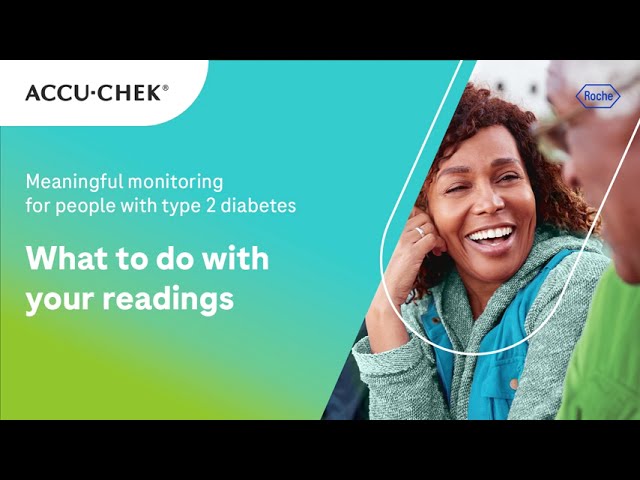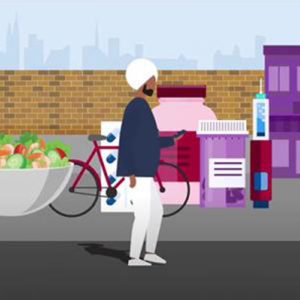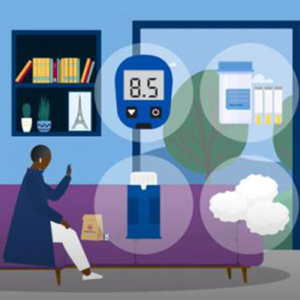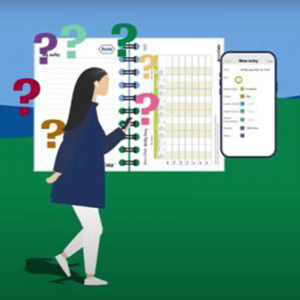What to do with your blood glucose readings
So you’ve been checking your blood glucose levels and keeping a record, but what does it all mean?
Remember, one blood glucose check in isolation will not tell you the whole story. Getting the results is one thing, but knowing what to do with them is key. Making the most of your data can help you to make better decisions about your health, such as dietary choices and insulin doses.
Things you could look out for:
- Low blood sugars (below your target range)
- High blood sugars before meals (above your target range)
- High blood sugars after meals (above your target range)
Blood glucose (sugar) targets will vary from person to person, and can depend on your age, your overall health and any medication you are prescribed. Generally, the target range for people with type 2 diabetes will be 4 - 7 mmol/L before meals and 5 - 8.5 mmo/L more than 1.5 hours after meals. However your healthcare professional will let you know what your individual target range is.
When you check your blood sugar level, sometimes it will be outside your target range - this is completely normal and could be in response to something you’ve eaten, or an activity you have undertaken. This is why it’s really important to keep a record so that you and your healthcare team have something to refer back to when looking at the patterns. If there is an obvious pattern of consistent highs or lows, then your healthcare team can discuss what may have caused this with you. They can then suggest some changes to your therapy - this may be a different dosage or different medication all together, or it could be a lifestyle change such as an adjustment to your diet.
Although the occasional one-off reading outside of your target range is completely normal, it’s important to take action if your blood glucose level is too low (hypo). A hypo can be treated by eating or drinking some fast acting carbohydrates. Things like orange juice or jelly sweets are very fast acting and so are good for treating hypos. Your healthcare team will be able to give you some guidance on how much you would need to use.
Before making any changes to your lifestyle or medication, please speak to your healthcare professional to check it is suitable for you
This content is provided for general information only. It is not intended to amount to advice on which you should rely – you must obtain professional or specialist advice from your healthcare professional before taking, or refraining from, any action on the basis of the content. Although we make reasonable efforts to ensure that the content is up to date, Roche makes no representations, warranties or guarantees, whether expressed or implied, that the content is accurate, complete, up-to-date or that it should be relied upon.




